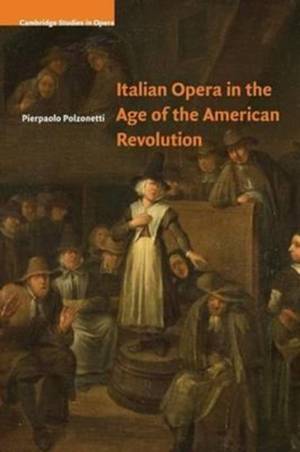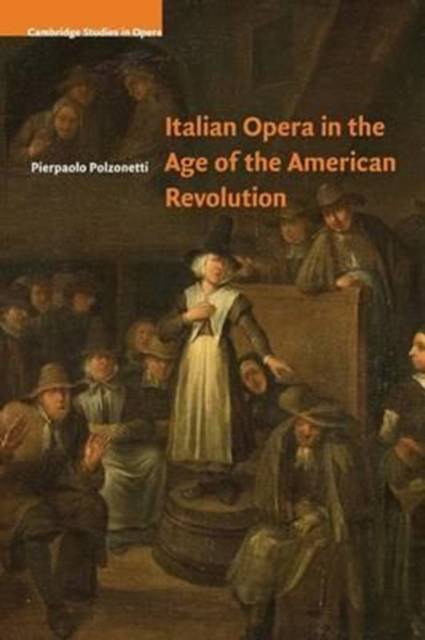
Je cadeautjes zeker op tijd in huis hebben voor de feestdagen? Kom langs in onze winkels en vind het perfecte geschenk!
- Afhalen na 1 uur in een winkel met voorraad
- Gratis thuislevering in België vanaf € 30
- Ruim aanbod met 7 miljoen producten
Je cadeautjes zeker op tijd in huis hebben voor de feestdagen? Kom langs in onze winkels en vind het perfecte geschenk!
- Afhalen na 1 uur in een winkel met voorraad
- Gratis thuislevering in België vanaf € 30
- Ruim aanbod met 7 miljoen producten
Zoeken
Italian Opera in the Age of the American Revolution
Pierpaolo Polzonetti
€ 53,45
+ 106 punten
Uitvoering
Omschrijving
How did revolutionary America appear to European audiences through their opera glasses? The operas studied in this volume are populated by gun-toting and slave-holding Quakers, handsome Native Americans, female middle-class political leaders, rebellious British soldiers and generous businessmen. Most of them display an unprecedented configuration of social and gender roles, which led leading composers of the time, including Mozart, Haydn, Anfossi, Piccinni and Paisiello, to introduce far-reaching innovations in the musical and dramatic fabric of Italian opera. Polzonetti presents a fresh perspective on the European cultural reception of American social and political identity. Through detailed but accessible analysis of music examples, including previously unpublished musical sources, the book documents and explains important transformations of opera at the time of Mozart's masterpieces, and its long-term consequences up to Puccini. Shedding new light on familiar and less-familiar operatic works, the study represents groundbreaking research in music, cultural and political history.
Specificaties
Betrokkenen
- Auteur(s):
- Uitgeverij:
Inhoud
- Aantal bladzijden:
- 398
- Taal:
- Engels
- Reeks:
Eigenschappen
- Productcode (EAN):
- 9781316641187
- Verschijningsdatum:
- 2/02/2017
- Uitvoering:
- Paperback
- Formaat:
- Trade paperback (VS)
- Afmetingen:
- 152 mm x 229 mm
- Gewicht:
- 530 g

Alleen bij Standaard Boekhandel
+ 106 punten op je klantenkaart van Standaard Boekhandel
Beoordelingen
We publiceren alleen reviews die voldoen aan de voorwaarden voor reviews. Bekijk onze voorwaarden voor reviews.









